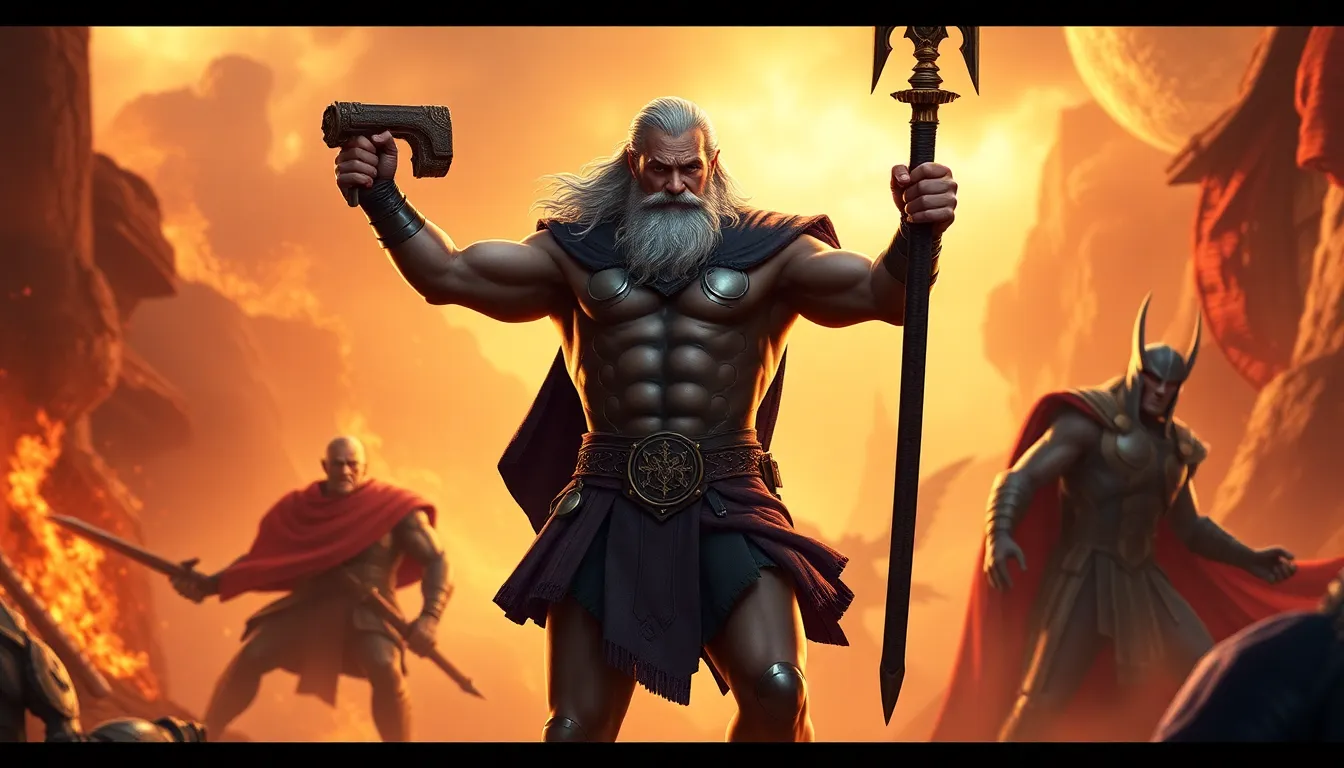The Quest for the Legendary Spirit: Myths of Inspiration
Introduction: Defining the Legendary Spirit of Inspiration
Inspiration is a universal phenomenon that transcends cultures and time. It is the spark that ignites creativity, propelling individuals to create art, innovate, and express themselves. Across various cultures, inspiration is often personified as a mythical being or spirit, illustrating its revered status in the human experience. Myths play a critical role in shaping our understanding of inspiration, providing narratives that connect human creativity to divine forces.
The Origins of Inspirational Myths: A Historical Perspective
Throughout history, ancient civilizations have viewed inspiration as a gift from the gods. In many cultures, inspiration was believed to originate from divine beings who bestowed creativity upon mortals. For example:
- Mesopotamia: The Sumerians believed that the goddess Nanshe inspired poets and musicians.
- Greece: The Muses, nine goddesses, were thought to inspire artists, scientists, and writers.
- Egypt: The goddess Ma’at represented truth and balance, guiding thoughts and creativity.
These myths not only highlight the reverence for creativity but also emphasize a connection between the divine and human expression, shaping our historical perspective on inspiration.
Archetypes of the Inspirational Muse: From Ancient to Modern Times
The archetype of the muse has evolved significantly from ancient times to the modern era. In classical mythology, the Muses were personifications of the arts, each governing a different domain:
- Calliope: Epic poetry
- Clio: History
- Erato: Love poetry
- Polyhymnia: Sacred poetry
- Urania: Astronomy
In Native American cultures, spirits such as the Wind or the Earth are seen as sources of inspiration, guiding artists and storytellers. The evolution of the muse figure into modern literature and art reflects a shift from divine inspiration to a more personal and psychological understanding of creativity.
The Intersection of Inspiration and Creativity: Psychological Insights
Psychology offers fascinating insights into the nature of inspiration. Theories such as the “Incubation Theory” suggest that inspiration often arises after a period of subconscious processing. Key psychological perspectives on inspiration include:
- Flow State: Coined by Mihaly Csikszentmihalyi, this state occurs when individuals are fully immersed in an activity, often leading to heightened creativity.
- Intrinsic Motivation: The internal drive to create, which can be sparked by personal experiences or emotional connections.
Myths of inspiration continue to influence contemporary understandings of creativity, reinforcing the idea that inspiration is both a mystical and psychological experience.
Legends of Personal Transformation: Stories that Inspire
Throughout history, numerous individuals have embodied the themes of inspirational myths, demonstrating personal transformation through creativity. Notable case studies include:
- Vincent van Gogh: His struggles with mental health and profound passion for art reflect the archetypal journey of the tortured artist.
- Frida Kahlo: Her life story intertwines pain, resilience, and creativity, echoing the myth of the phoenix rising from the ashes.
These personal narratives not only inspire others but also parallel mythical elements, illustrating the power of storytelling in human experience.
Cultural Variations: Inspiration Across the Globe
Inspiration manifests differently across cultures, shaped by unique beliefs and traditions. A comparative look at various cultures reveals diverse interpretations of inspiration:
- Japanese Shinto: Nature spirits, or Kami, are believed to inspire creativity in art and craftsmanship.
- Indian Hinduism: The goddess Saraswati symbolizes knowledge and the arts, inspiring scholars and artists alike.
- African Traditions: Ancestral spirits are honored as sources of inspiration for storytelling and music.
These myths not only provide insight into cultural values but also showcase the universal quest for inspiration.
The Role of Nature in Myths of Inspiration
Nature plays a significant role in many myths of inspiration, often depicted as a powerful source of creative energy. Various natural elements are symbolically linked to inspiration:
- Mountains: Representing transcendence and the pursuit of higher knowledge.
- Rivers: Symbolizing the flow of creativity and the passage of time.
- Forests: Serving as places of introspection and connection to the divine.
The connection between nature and creativity reflects the belief that the natural world fosters inspiration and artistic expression.
Modern Interpretations: Myths of Inspiration in Pop Culture
Contemporary media often reinterpret classical myths, reshaping our perceptions of inspiration. Examples include:
- Film: Movies like “Dead Poets Society” and “Amadeus” explore themes of artistic inspiration through the lens of historical figures.
- Literature: Novels such as “The Alchemist” by Paulo Coelho emphasize the personal quest for inspiration and self-discovery.
- Music: Artists frequently draw on mythical themes to convey messages of hope and creativity.
These adaptations not only keep the myths alive but also resonate with modern audiences, reinforcing the enduring relevance of inspiration.
The Quest for Inspiration in the Digital Age
In the digital age, technology significantly influences the search for inspiration. Social media platforms and online communities have reshaped how individuals connect with creativity:
- Online Communities: Platforms like Pinterest and Instagram serve as visual inspiration boards for artists and creators.
- Digital Storytelling: Blogs, podcasts, and vlogs allow individuals to share their inspirational journeys, creating new myths.
The quest for inspiration has become a collective experience, where technology fosters connections among creators worldwide.
Conclusion: Embracing the Legendary Spirit in Our Lives
The relevance of inspirational myths in contemporary society cannot be overstated. They remind us of the profound connection between human creativity and the legendary spirit that inspires it. By embracing these myths, we can cultivate a personal connection to inspiration, empowering ourselves to pursue our creative endeavors. As we navigate our own quests for inspiration, let us remember the timeless narratives that have shaped our understanding of this powerful force.



